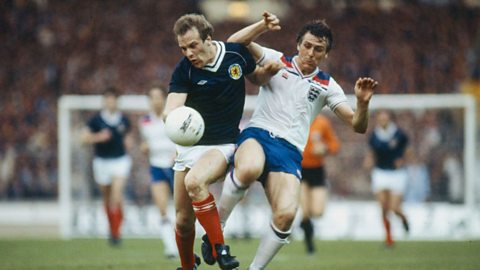Some call it the beautiful game, others describe it as the greatest game in the world. We are, of course, talking about football.
Football is for all. Football associations around the UK encourage football lovers to get involved whatever their level of ability. The sport has adapted into different forms, so that almost everybody has a chance to play.
We've spoken to three England players about their experiences of different types of football.
Powerchair football - Marcus Harrison
"I first got into powerchair football when I was 11 - I went to a tournament with my high school and IÔÇÖve never looked back.
In 2013, I got my first England call up - I was only 15. IÔÇÖve recently got back from Finland with England for the European Championships where we ended up winning 2-2 (on penalties) - that was a day!
ItÔÇÖs an honour to play for your country. I never thought I would play football, never mind for England. IÔÇÖll be going to Australia in 2021, hopefully to play in the World Cup.
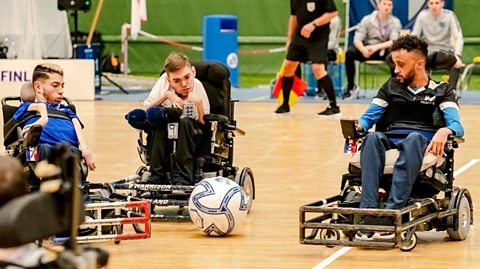 Image source, Sergiu Borcuta Photography
Image source, Sergiu Borcuta Photography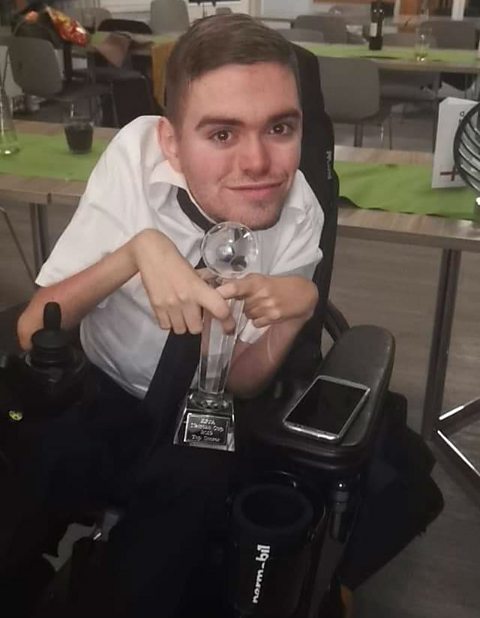
These are the rules of the game: youÔÇÖve got four a side, one goalkeeper and three outfield players on a basketball court. You donÔÇÖt use your hands or your feet - you use your chair to hit the ball. The keeper can also play out, he doesnÔÇÖt have to stay in goal. You can have as many attackers as you want, but you can only have two defenders in the penalty area and one of them includes the goalkeeper. One of the main rules is the two-on-one rule: if you and your teammate are within 3 m (10 ft) of the opposition and they have the ball, thatÔÇÖs a foul. So youÔÇÖve got to stay spread out.
Playing football has shown me that it is possible to travel whilst being in a wheelchair. IÔÇÖve made loads of mates through it. It has made me a lot more independent, a lot more confident. At uni, I moved out of my mum and dad's house and I moved into student accommodation. I wouldnÔÇÖt have done all of that if it wasnÔÇÖt for football - so yeah, itÔÇÖs changed my life, really.ÔÇØ

Deaf and hearing impaired football - Emma
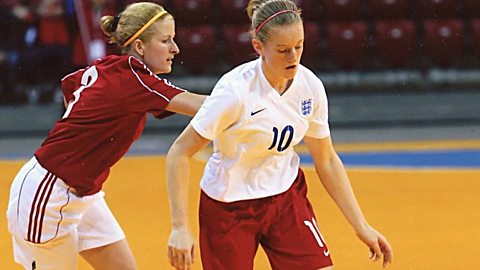
"I didnÔÇÖt start playing football until I was around 12 years old. Manchester United Foundation came into my school to give football sessions, and from there I was told about their under-16 girls' team. At that stage I did not know there were deaf football teams.
For the actual game of football, the same rules apply. Differences come into play when playing at international level or within deaf-specific competitions. All players must have a hearing loss of 55dB minimum in their better ear to qualify to play, and must remove any hearing aid or cochlear implant when playing in international tournaments.
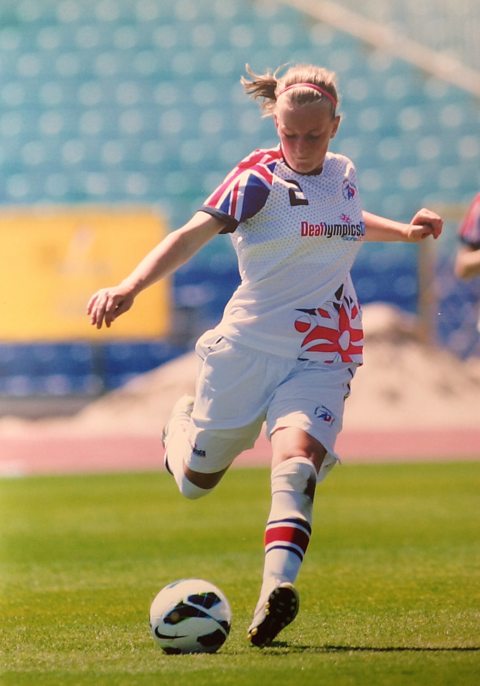
The communication aspect of deaf and hearing teams is very different. When playing for a deaf side we rely on visual communication, using hand signals and signing. We use interpreters on occasion, as some of our players only communicate using sign language. I use speech, lip reading and sign language, but prefer to sign when playing with a deaf team. With hearing teams, it can sometimes be difficult as you canÔÇÖt hear what is being said. Even when you find a team where you fit, they sometimes forget that you cannot hear them shout instructions.
Football means everything to me. I've been fortunate to represent my country for the last 10 years and it has become my life. IÔÇÖve travelled extensively playing futsal for England in the World and European championships. I've also been lucky enough to be invited to events like the FA WomenÔÇÖs awards - if I didnÔÇÖt play football, I would not have had the opportunity to meet people who I look up to in my field of sport.ÔÇØ

Blind football - Azeem Amir
ÔÇ£Blind football is played by those who are completely blind or with minimal sight. The game is five-a-side, but everybody is blindfolded. Goalkeepers are fully-sighted, but they have a small box that they can stay inside. Partially-sighted keepers wouldnÔÇÖt be able to see the ball because it would fly by so fast.
I have been blind since birth and went to a mainstream school so didnÔÇÖt really have access to a proper sporting environment. At 15, I went to a disability sports day in Manchester and really enjoyed it. When I was 17, I was old enough to play in the English Blind Football league, so I signed for a team in Merseyside. Two years later I got scouted by some England coaches and started training with the lads at St George's Park. My first England cap came in Japan in 2018; since then I have been lucky enough to travel the world.
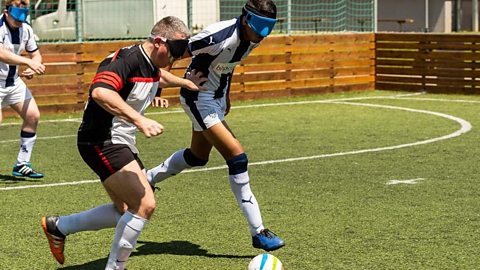
With blind football, youÔÇÖre only relying on your touch and listening abilities so the communication element is very important. The head coach stands at the side of the pitch, and a guide stands behind the post you are shooting towards. Along with the goalkeeper, they give instructions and guidance.
ItÔÇÖs a great opportunity for me personally to play against players of similar abilities - being blind isnÔÇÖt an excuse, IÔÇÖm lucky to be an elite athlete. Representing your country is an absolute honour, not many people get to wear the three lions badge and sing the national anthem.
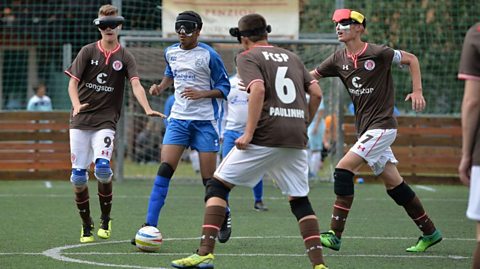
We didnÔÇÖt qualify for the 2020 Paralympics. We got to the semi-final of the European Championships and needed to win, but we lost on penalties after drawing 0-0. It was very gutting but we have got to suck it up! WeÔÇÖll be looking to qualify for the 2024 Paralympics and the aim for me is to be an influential player for the team.ÔÇØ
From the minutes of its first meeting to a World Cup replica
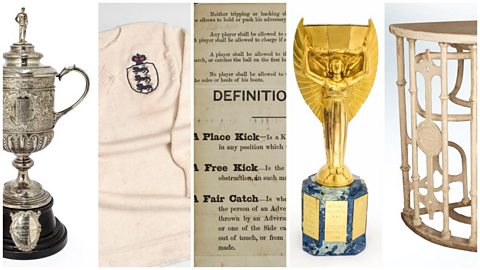
The FAÔÇÖs footballing milestones quiz
How many English footie firsts do you know?
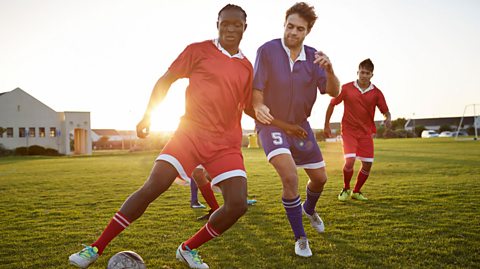
Four great international sporting rivalries
In all sports there are rivalries, we take a look at some of the biggest.
